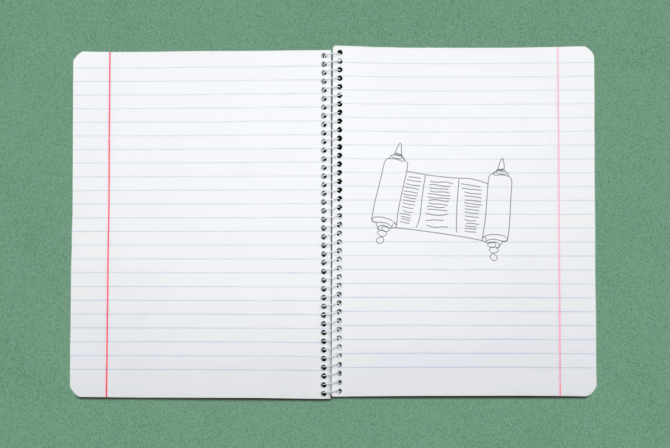I saw it in his eyes. A subtle closing down, a loss of interest. His mouth twisted into a subtle sneer as he said, “Oh, then you’re really valuable, the backbone of… everything!”
People around me nodded and smirked. I was attending a local community meeting and was completely focused on the evening’s agenda. When the discussion leader suddenly proposed we go around and say our names and what we did—turning to me first—I quickly blurted out the only descriptor I could think of: “I’m a housewife.”
As the people around me took turns proudly stating their jobs, I had a chance to reflect on my self-chosen description of how I spend my days. It wasn’t the first time I’d called myself a housewife: In the 13-plus years since I gave up full-time work, I’ve gone through a number of self-imposed monikers.
For the first year or so, I continued to define myself by my last professional position. After a while, though, it began to sound odd to brag about year-old work tasks, and I moved onto my next descriptor: Ph.D. student. Pregnant and with a toddler, I impressed myself with my feminist can-do spirit, and finished up my long-abandoned dissertation.
READ: Don’t Call Me A Housewife…Or A Working Mother, I Hate That Too
That was good for another couple of years, as was—when pregnant with child number three—I worked briefly as an adjunct professor at a prestigious university. “Me? Oh, I’m teaching,” I’d say modestly to strangers—ignoring the fact that my work life had shrunk to instructing exactly one class. (For a few months after the teaching job ended, I could still eke out some prestige at social events from the experience: “I just finished up teaching a course” lasted through the summer.)
Child number four brought one final blast of professional interest, as I managed to get a book published and embarked on a round of speaking engagements. “I’m an author,” sounded pretty good—for another year, until that too grew stale.
“I’m a full-time mom,” tided me over for a while—until my kids got to the point where they were potty-trained and could basically feed, dress, and walk themselves. I once heard a woman grinningly shout “I’m a mom!” when someone asked her what she did, and I had an instant, visceral image of her hovering over her children, fussing and smothering them. I’m sure the thought wasn’t fair, but there was no way I wanted to define myself solely by motherhood. I love my children and they’re the center of my world—but there’s a lot more to me, I thought, than looking after them.
In the long, professionally fallow years as my children have been growing, I’ve experimented with even more answers to the perennially vexing question, “What do you do?” Most I discard after one use. There was the time I truthfully answered, “I teach Hebrew school,” and I immediately wanted the floor to open up and to sink out of sight. I tried, “I’m a freelance author,” but that too sounded overly thin and failed to capture most of what I do with my time.
READ: The Glamorous Housewife’s Vegetarian Shabbat
“I don’t work,” always sounds to me like I’m a broken clock or appliance, while, “I don’t work outside the home,” seems pedantic. A friend once said she “hung out” with her kids, but I knew that to be a lie: She might have had some hanging-out down time, but she also had another identity as a major philanthropist and activist on the boards of a number of Jewish charities. Her false modesty grated.
There is the difficulty. We all have multiple roles in life. As the parent who spends more time at home, I’ve had to ask myself, why? What are my goals for my family? As we all get older, we strive for growth: spiritual, emotional, and intellectual. I see my task as paving the way for all of us to reach our potential—and that ambition seems bigger than any single label can ever capture. I longingly looked towards the Hebrew language, where the term for housewife—bailat ha’bayit—means “master of the home” and is a compliment. Why couldn’t “housewife” have a similarly positive association in English?
Rabbi Israel Friedman, the great 19th century Hasidic thinker, was once asked for a rule-of-thumb guide to life. He answered with a question: “How does a tightrope walker manage to maintain his balance?” “When he feels himself pulled towards one side,” Rabbi Friedman explained, “he leans towards the other.”
I’ve had years when my professional life was at the fore, and times in my life when child-rearing was paramount. Perhaps it’s because as I’ve grown older I care less about sounding prestigious to other people, but “housewife,” despite its old-fashioned connotations, seems the best catch-all answer to me for now.







